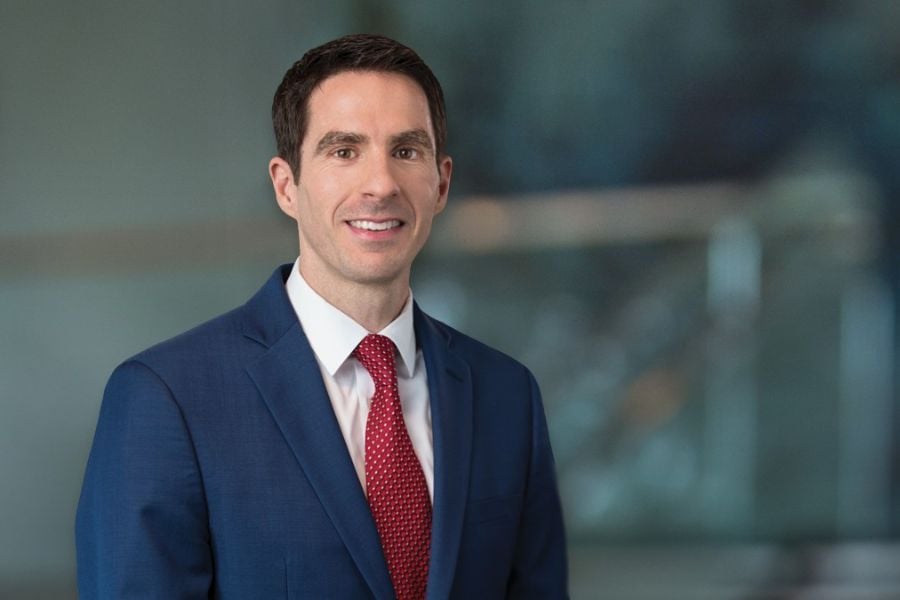

Dimensional Fund Advisors' steady migration into the ETF space could be moving to a new level as the $614 billion asset manager seeks regulatory approval to launch ETF share classes for its U.S. mutual funds, which represent $400 billion.
A popular asset manager with financial advisors, DFA is seeking exemptive relief from the Securities and Exchange Commission to do what Vanguard has been doing for about 20 years.
One major distinction is that the 70 mutual funds for which Vanguard has created ETF share classes to date have all been passive indexed strategies. DFA, hoping to take advantage of an expired Vanguard patent on the ETF share class model, wants to do the same thing with actively managed funds.
“This is another avenue for legacy asset managers to enter the ETF space,” said James Seyffart, ETF analyst with Bloomberg Intelligence.
Seyffart said that from an asset manager’s perspective, an ETF share class is appealing because it addresses many of the challenges legacy asset managers face when confronted with the lopsided flows out of mutual funds and into ETFs.
“If you’re a traditional asset manager with billions in 401(k) plans, where you don’t see a lot of ETFs on the menu, you could offer a share class ETF with the same strategy and track record and assets,” he said. “There are benefits to asset managers and end investors.”
It's difficult to say whether the SEC will approve the exemptive relief, especially since it denied a similar request from Vanguard in 2015 to offer an ETF share class for active mutual funds. But DFA, in its well-orchestrated filing and presentation, is making the case for why the ETF share class is good for both mutual fund and ETF shareholders.
“We believe our innovative approach to custom baskets provides a venue for efficient in-kind rebalancing through the ETF share class that would benefit shareholders of both mutual fund and ETF share classes through lower portfolio transaction costs and increased tax efficiency,” Gerard O'Reilly, DFA’s chief executive and chief investment officer, wrote in a blog post on the company’s website on Thursday when the request was filed with the SEC.
During an interview with InvestmentNews Friday morning, O’Reilly said, “We think our investment approach is uniquely suited to address concerns the SEC has.”
“An ETF share class has the potential to allow another mechanism to rebalance the portfolio in a tax-efficient way to lower or eliminate cap gains distributions,” he said. “When you have flexibility on how you manage portfolios, additional tools can benefit all shareholders.”
Industry watchers see multiple dimensions and potential implications to the DFA filing and the way it could open the floodgates for traditional mutual fund companies to migrate into the ETF space, where investor assets have been flowing.
“The DFA filing was very thorough and very thoughtful in terms of addressing the SEC’s concerns around fair treatment of share class owners,” said Ben Johnson, head of client solutions at Morningstar, who works with asset management clients.
“Their argument boils down to it will be better for everybody,” Johnson added.
DFA mutual funds, which are sold almost exclusively to financial intermediaries, entered the ETF space in 2020. The company now has 31 ETFs that combine for $95 billion, making DFA the industry’s largest provider of active ETFs.
Seven of the DFA ETFs, representing $40 billion, were created by converting mutual funds into ETFs.
“Dimensional has quickly climbed the ETF leader board through conversions of mutual funds and the successful launch of low-cost active ETFs,” said Todd Rosenbluth, director of research at VettaFi. “The ability to offer an ETF share class to their broader suite will make them an even larger player.”
DFA’s exemptive relief request applies to 100 mutual funds, although the actual creation of an ETF share class for each fund will still require approval at the fund board level.
O’Reilly pointed out that even though ETFs can be purchased by anyone on an exchange, the expanded direct retail investor access will not impact the tax consequences of the mutual funds offering an ETF share class.
“When you have an ETF, it trades on a secondary exchange and that’s where the retail investors typically would buy an ETF, and that does not cause turnover inside the mutual fund,” he said, referencing DFA’s “innovative infrastructure” that resulted in minimal or zero capital gains distributions for the seven mutual funds that have been converted to ETFs.

The new regional leader brings nearly 25 years of experience as the firm seeks to tap a complex and evolving market.

The latest updates to its recordkeeping platform, including a solution originally developed for one large 20,000-advisor client, take aim at the small to medium-sized business space.

David Lau, founder and CEO of DPL Financial Partners, explains how the RIA boom and product innovation has fueled a slow-burn growth story in annuities.

Crypto investor argues the federal agency's probe, upheld by a federal appeals court, would "strip millions of Americans of meaningful privacy protections."

Meanwhile in Chicago, the wirehouse also lost another $454 million team as a group of defectors moved to Wells Fargo.
Orion's Tom Wilson on delivering coordinated, high-touch service in a world where returns alone no longer set you apart.
Barely a decade old, registered index-linked annuities have quickly surged in popularity, thanks to their unique blend of protection and growth potential—an appealing option for investors looking to chart a steadier course through today's choppy market waters, says Myles Lambert, Brighthouse Financial.
